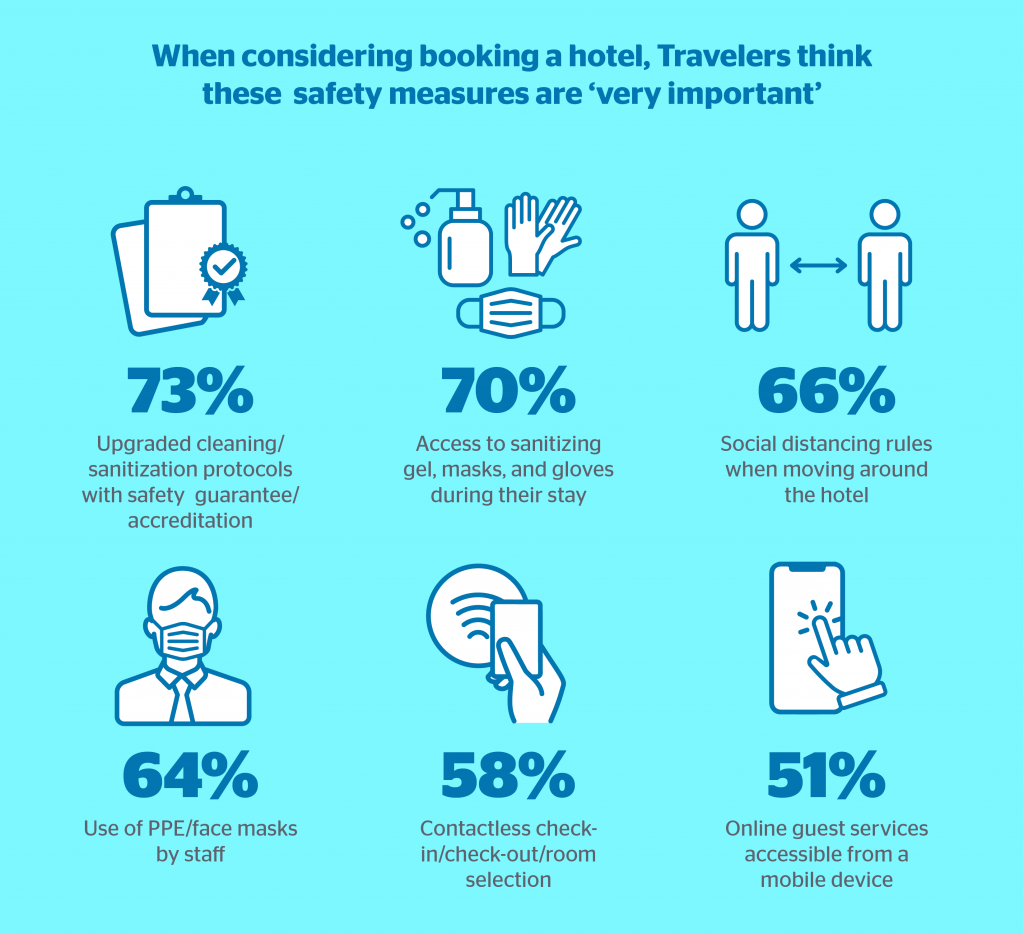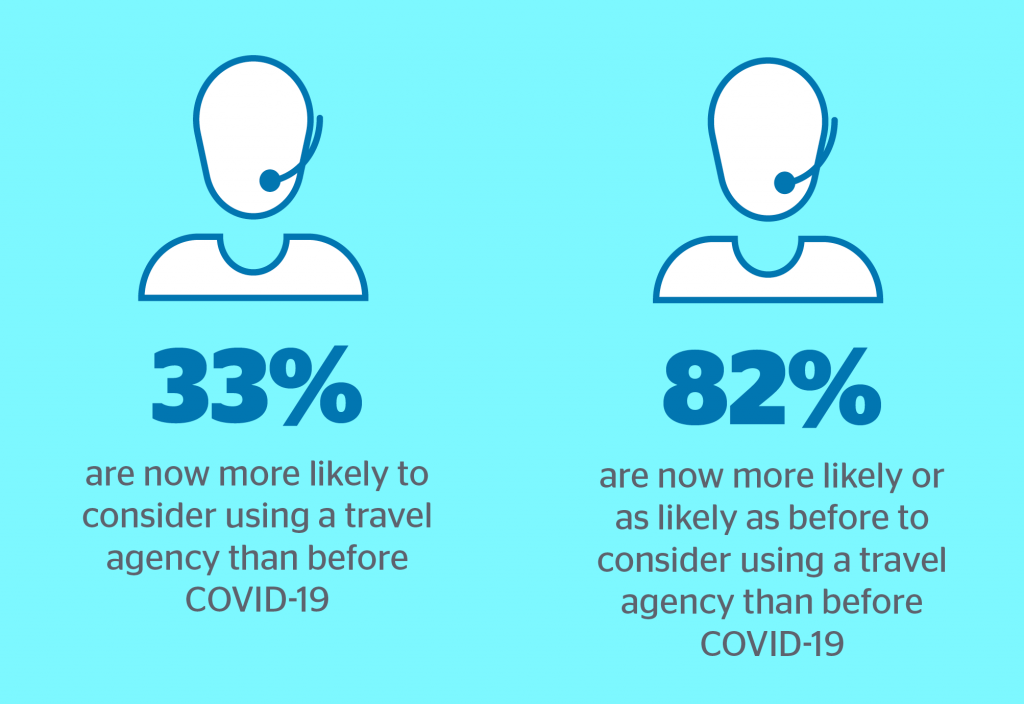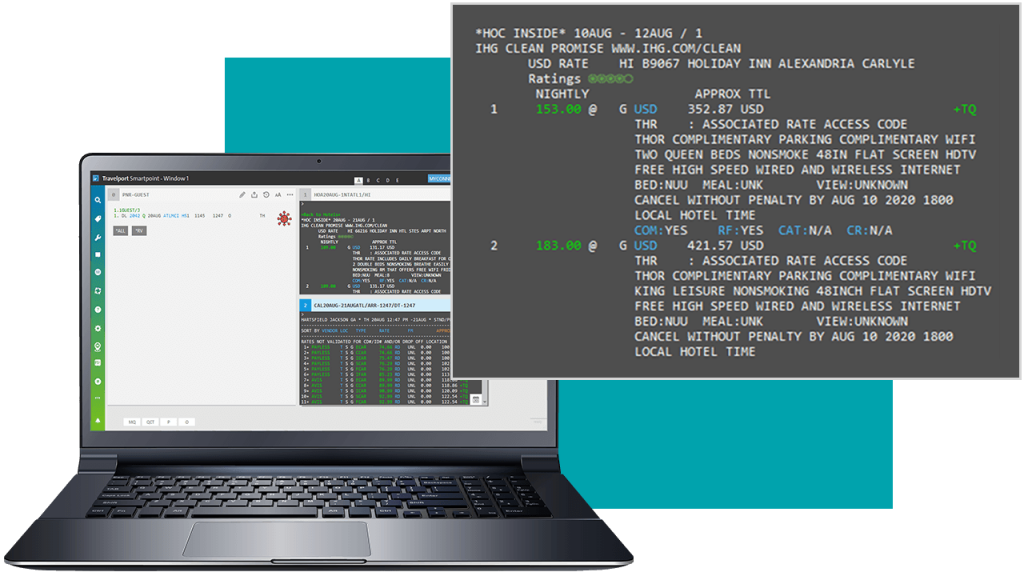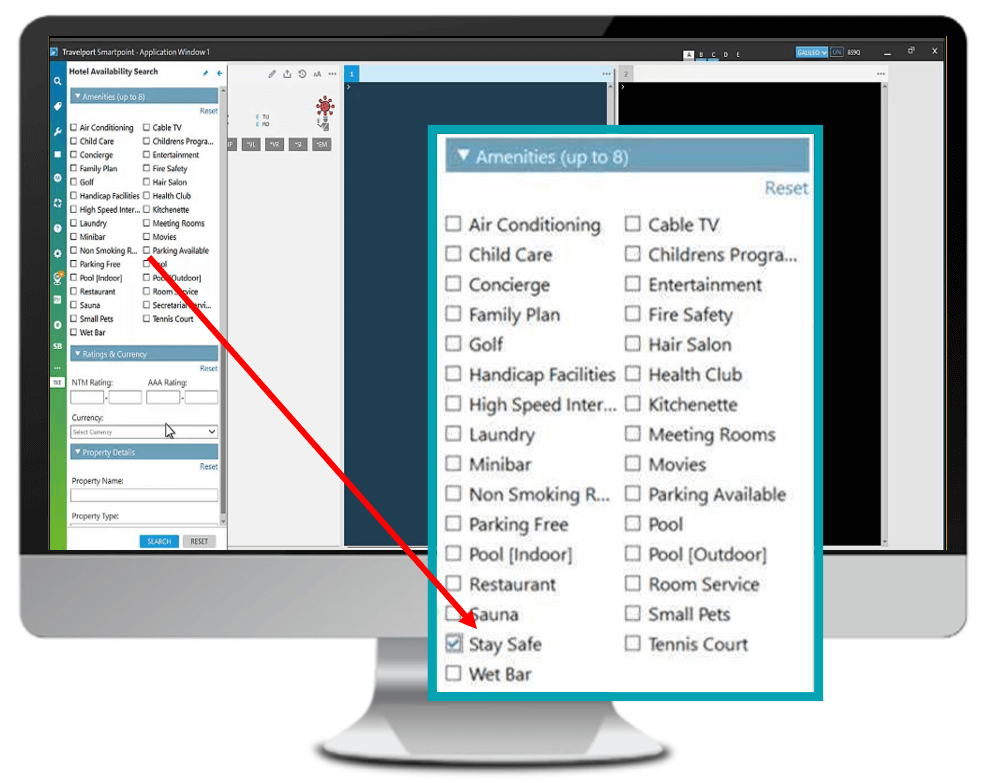Julia Mighall
Global Head of Customer Success and Delivery - Hotel and Car, Travelport
Share article
This blog is part one of our miniseries, focused on helping hoteliers win bookings and maximize revenue throughout recovery.
The typical trip itinerary is not what it was this time last year. With the COVID-19 situation varying across regions, many people are still avoiding international travel — or due to restrictions, simply cannot right now. And though IATA has found the risk associated with air travel to be very low, domestic drive destinations remain the preferred alternative for now. This is causing travel agencies to rethink their marketing and offers, changing the focus from air ticket sales to retailing hotel stays instead.
This is good news for the hotel industry, which was hit hard during the various lockdowns. But with all of this change taking place, and in this competitive climate, it’s vital to know how to catch an agent’s eye. This first blog in our miniseries focuses on what you can do to help them secure bookings for you.
The hotel sector is showing the strongest signs of early recovery. This is largely thanks to the staycation trend — driven by uncertainty, the reintroduction of restrictions, government advice, and campaigns by destination marketing organizations. From our recent research, we know of two significant shifts that hoteliers should be aware of:
It’s only natural that in the middle of a pandemic travelers want as many safety measures in place as possible. Until we have a definitive solution to COVID-19, this will remain top of mind for them when making a booking. Here are the measures they say are most important:

The second key area of change is that more people are turning to travel agencies to make a booking than before COVID-19. This is because they have confidence in agencies to provide assurance on safety measures (65%), plus their ability to change or cancel a trip if required (23%). Interestingly for hotels, 39% of young travelers (18-38yrs) are now more likely to use a travel agency to book their trip than before.
Remember: for travel agencies, a hotel stay is no longer just an attachment to an air booking, but something that people traveling domestically will seek their advice about. This is an important consideration for hoteliers, as it demonstrates the renewed focus agents will have in retailing your offers from now on.

You now need to understand how these changes have impacted agents, and how to present new content to them. Here are some ways to do that:
1. Thoroughly document and communicate on your safety/hygiene measures
To be able to inform and advise travelers, agents need to know the latest updates on your safety measures, such as social distancing requirements, regulations, amenity restrictions, as well as information on government restrictions on travel. Since these are constantly changing, agents often need to look at many different sources for the most up-to-date information before making a booking. Some platforms like Travelport have consolidated this information — delivered via an APP plugin — making it as easy as possible for them to sell your offers.
On our platform, you can communicate your latest safety measures, restrictions, and changes to agents through banner and sign-on message, plus digital advertisements. You can also use our best practice guides for advice on how to update your room and rate descriptions to communicate the safety measures that travelers can expect to see in place. This is key to restoring traveler confidence and encouraging them to book again.

This will compliment your owned direct channels (like website, social media, and email) that you are likely already using to distribute your safety messages in text, images, and video formats.
2. Standardize where possible
Numerous trade and government bodies, including the World Travel and Tourism Council (WTTC) and the World Health Organization (WHO) have issued guidelines to support recovery in the hotel sector. These are designed to define what the necessary health and safety attributes are, and communicate them in a consistent way.
Travelport is aggregating hotel safety information into a new amenity called Stay Safe, which enables agents and travelers to quickly and easily filter results, based on hotels or chains who have signed up.

3. Stay flexible, honest, and transparent on policies and pricing
Given the fluid nature of the situation, travelers are finding it impossible to plan ahead. This is reflected in the changes in booking lead times that we’re seeing across the board. Those who are traveling want reassurance that if their plans change then they can get their money back, or change their bookings if needs be. So, be sure to update your cancellation policies, and have all rate plans loaded.
Your hotel should therefore have the appropriate cancellation policies in place to reassure them. Again, travelers are seeking agency advice on this front right now, so you need to be sure your content on booking platforms is set up to enable agents to quickly and easily find this information.
4. Rekindle the desire to travel
Agencies want to know what special offers you have that may entice travelers. Although consumers are no longer as heavily influenced by price and are now more concerned with safety measures, they are still looking for value and promotional deals may tempt them.
For this reason, it’s also important that your hotel loads the same prices as OTAs and .com sites. All of this may encourage travelers — who are eagerly anticipating a full return to travel in 2021 — to book ahead. Like safety messages, this can also be done using headline banner advertisements and advertising within the booking platform.
5. Deliver reliable and accountable customer service and follow-up
For travel agencies representing hundreds of hotel brands, it takes heavy-duty support to ensure customers have all the information they need to buy with confidence. Once they do, it’s important that your hotel matches this standard of customer service — particularly when you consider how important customer reviews are to agencies and travelers alike.
I hope you’ve found these first steps useful. In the rest of this miniseries, I’ll be exploring how you can optimize your GDS content to communicate your safety messages to agents, sharing tips to restore traveler confidence and boost your hotel’s appeal, plus giving details about our new Stay Safe platform filter.